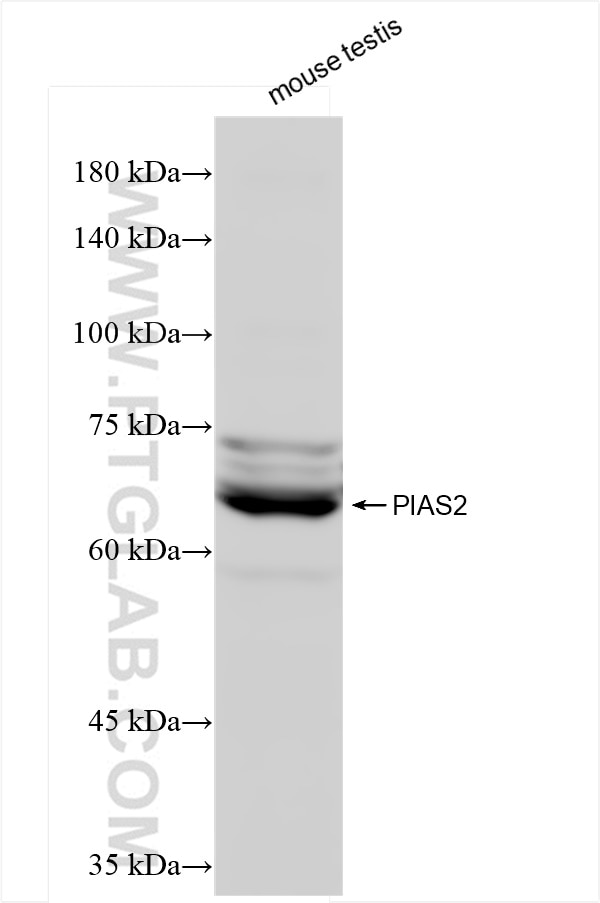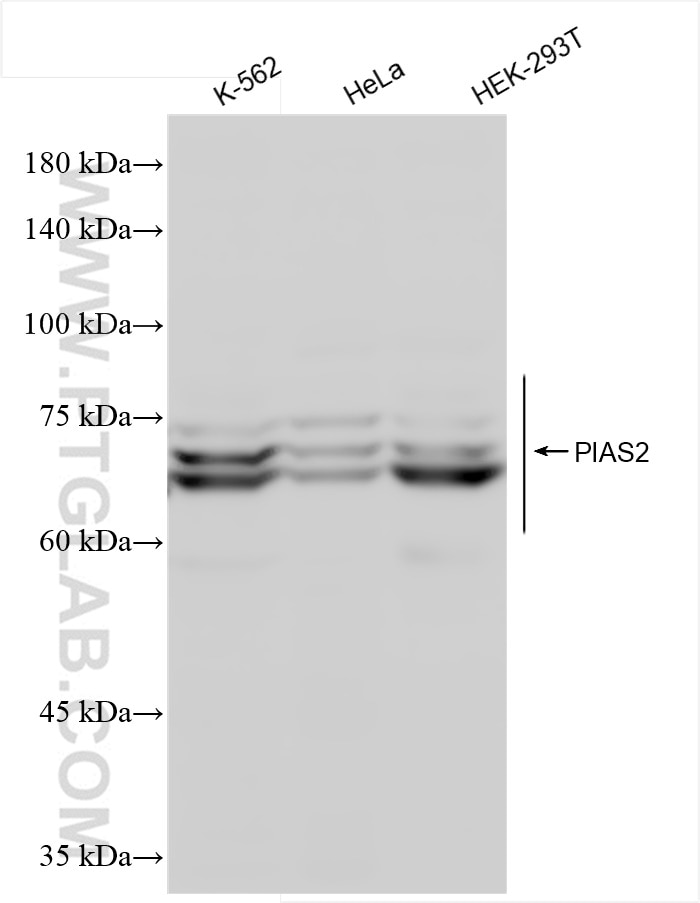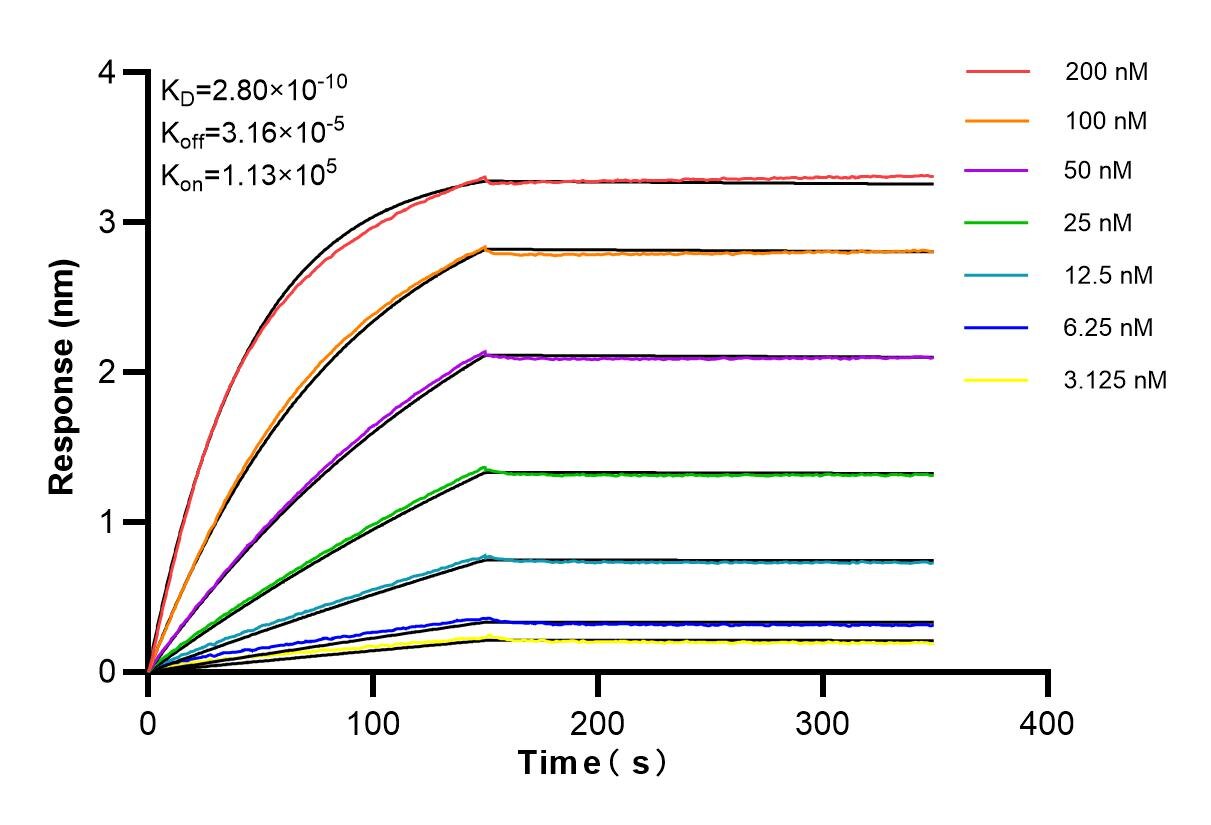Tested Applications
| Positive WB detected in | K-562 cells, mouse testis tissue, HeLa cells, HEK-293T cells |
Recommended dilution
| Application | Dilution |
|---|---|
| Western Blot (WB) | WB : 1:500-1:2000 |
| It is recommended that this reagent should be titrated in each testing system to obtain optimal results. | |
| Sample-dependent, Check data in validation data gallery. | |
Product Information
84189-4-RR targets PIAS2 in WB, ELISA applications and shows reactivity with human, mouse samples.
| Tested Reactivity | human, mouse |
| Host / Isotype | Rabbit / IgG |
| Class | Recombinant |
| Type | Antibody |
| Immunogen | PIAS2 fusion protein Ag9032 Predict reactive species |
| Full Name | protein inhibitor of activated STAT, 2 |
| Calculated Molecular Weight | 63 kDa, 69 kDa |
| Observed Molecular Weight | 63-68 kDa |
| GenBank Accession Number | BC015190 |
| Gene Symbol | PIAS2 |
| Gene ID (NCBI) | 9063 |
| RRID | AB_3671742 |
| Conjugate | Unconjugated |
| Form | Liquid |
| Purification Method | Protein A purification |
| UNIPROT ID | O75928 |
| Storage Buffer | PBS with 0.02% sodium azide and 50% glycerol pH 7.3. |
| Storage Conditions | Store at -20°C. Stable for one year after shipment. Aliquoting is unnecessary for -20oC storage. 20ul sizes contain 0.1% BSA. |
Background Information
PIAS2 functions as an E3-type small ubiquitin-like modifier (SUMO) ligase, stabilizing the interaction between UBE2I and the substrate, and as a SUMO-tethering factor. PIAS2 also plays a crucial role as a transcriptional coregulator in various cellular pathways, including the STAT pathway, the p53 pathway and the steroid hormone signaling pathway. PIAS2 has 3 isoforms produced by alternative splicing with the MW of 68 kDa, 63 kDa and 45 kDa.
Protocols
| Product Specific Protocols | |
|---|---|
| WB protocol for PIAS2 antibody 84189-4-RR | Download protocol |
| Standard Protocols | |
|---|---|
| Click here to view our Standard Protocols |







